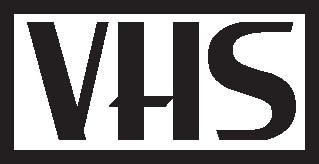Nowa Fantastyka Jun 2014

You might remember a column I wrote a few months back in which, among other things, I mocked David Brin’s “Transparent Society.” You might be surprised by the weedy unkillable thing that’s sprouted from that seed in the meantime.
I posted a director’s-cut of the article to my own blog a few months later. It got noticed the International Association of Privacy Professionals—an alliance of lawyers, politicians, and executives with far too much stature to be rooting around in the blog-slum of a midlist SF writer—who invited me to deliver a keynote speech at their annual Canadian summit. That talk (“The Scorched-Earth Society: A Suicide Bomber’s Guide to Online Privacy”) went over way better than it had any right to, given that it advocated breaking the law to an audience of lawyers. Canada’s privacy commissioner liked it a lot. It got praised by security demigod Bruce Schneier and by Cory Doctorow. It really raised David Brin’s hackles (that debate is ongoing). The IAPP’s online coverage of the talk became their most widely-read story of the year, but it contained some factual inaccuracies so I posted an online transcript of the talk to set the record straight1.
The debate continued on other fronts. Around the same time I gave my talk, fellow Canadian-SF author Rob Sawyer was over in Switzerland, debating for the motion that “Privacy is an outdated concept” (unsuccessfully; he got his ass handed to him by the other side). Maciej Cegłowski gave an awesome talk to a Düsseldorf audience on internet surveillance, a talk which Doctorow described as a perfect companion piece to my own (personally, I thought Cegłowski’s was better). (By a peculiar coincidence, way back in 2012 my wife fell into contact with Mr. Cegłowski over a mutual interest in bedbugs. Also my sister-in-law wants to marry him.)
And while we argue amongst ourselves the Canadian government replaces its once-independent privacy commissioner with a lapdog whose previous job involved building government surveillance programs. Down in the US, a lobbyist for cable companies has just been put in charge of “net neutrality.” Over in the UK, the government has decided to bring back secret trials. And coming back around to Canada again, it turns out that hundreds of thousands who’ve never been convicted of anything—who’ve never even been charged—somehow have “police records” even if they don’t have criminal ones.
Last fall in these pages I suggested that as corporate and political forces moved together to force us onto the cloud, local storage media would fall out of demand and ultimately become—either through market forces or legislative ones—largely unavailable. It was a grim question and a dark outlook. And yet, the title of that column—“The Cylon Solution”—was a reference to the way Battlestar Galactica’s ancient astronauts managed to win against a more powerful enemy: not by developing new technology, but by rediscovering the old. That title, if not the column, contained a measure of hope.
Let’s explore that for a change. Perhaps we should go back to analog benchmarks. I’ve made a small start: whenever I ponder some new media-delivery platform—be it for movies, music, or e-books—I ask myself, is it as versatile as a VHS tape?
You remember those: clunky spools of magnetized plastic, so primitive that it sometimes took two cassettes to hold a single low-definition movie. But once it was yours, it was yours. Amazon couldn’t reach down and erase it from a thousand kilometers away—so in that sense it was better than a Kindle. It didn’t expire after some arbitrary period of time; so it was better than any downloadable digital movie that comes with a best-before date. If you wanted to copy it, or play it on someone else’s machine, you could: so, better than anything that comes shackled with DRM today.
It’s a simple question: do you have at least as much control over today’s miracle devices as you did with a piece of analog technology three decades old?
If the answer is no, fuck it.
It’s why I don’t own a DVR; instead I own a primitive device that burns TV signals onto a DVD. It’s why my TV isn’t a TV at all, but a monitor. No WiFi, no webcam, none of those “smart” features that LG and the NSA can turn against us. It’s getting harder to find such tech—it’s cheap right now because they’re clearing out the last of the non-smart TVs, but when those are gone you’ll really have to shop around to find something that doesn’t come with HAL-9000 as standard equipment.
But you know, twenty years ago it was pretty tough to find an audio turntable, too. Back in the eighties the recording industry simply decided to stop selling vinyl records in favor of CDs—the argument was that CDs provided a better sound, but really the industry just wanted to make us buy our music collections over again in a new format. For decades, it worked. But eventually people decided they’d had enough, and—in the face of unilateral industry mandates, in the face of CDs, in the face of mp3s and downloadable content—today, miraculously, antique analog vinyl has staged a comeback.
Maybe we can do that again. Maybe the growing outrage over the Snowden revelations will actually get us off our asses and make us start taking privacy seriously again. If enough of us start applying the VHS criterion when we go shopping—just maybe, market forces will spare those dumb, non-networked machines that the Cylons can’t hack. Maybe such equipment will even get popular enough to warrant its own name, like retro or post-modern.
Call it—Backlash Technology.
1 It’s at www.rifters.com/real/shorts/ TheScorchedEarthSociety-transcript.pdf if you’re interested.